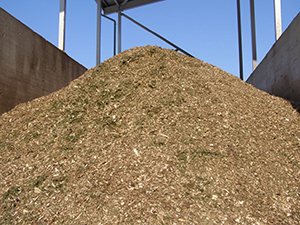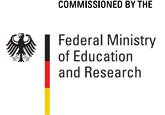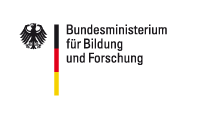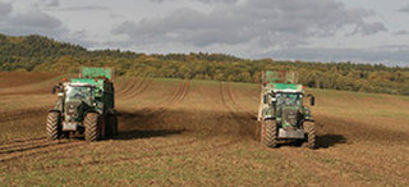Project objective
The project is developing a cooperation strategy for residue recycling. The objective is to build a network of scientists from the Danube region in order to initiate a joint research project to optimise the fertiliser effect of residues.
The return of residues from the energy use of biomass to agricultural areas in necessary to close nutrient cycles. In particular, the focus is on the utilisation of digestate (from biogas production) and biomass ashes. A targeted preparation and treatment of such residues can optimise the effect for agriculture and give them added value.
The long-term target of the network is to develop innovative products for soil improvement based on the residues of the bioenergy and food industries. As such, it is making a contribution to the sustainable production of biomass and for better environmental management in Germany and its partner countries.
Use of results
The long-term network activities are particularly relevant in light of the clear limits to storage space and the growing fertiliser prices for phosphorus. The global demand for phosphorus will increase in future years, particularly due to world population growth. Added to this is an increased demand for crop production in the non-food area to generate bioenergy. This will have an effect on the production and prices of food.
This is precisely the focus of the return of nutrients from bioenergy production residues to the agricultural nutrient cycle, as this succeeds in reducing the use of mineral fertilisers. To achieve this, phosphorus utilisation from such residues must also be optimised; however, this type of preparation is often not used to industrial levels for economic reasons.
Output of secondary raw material fertilisers
The use of organic secondary raw material fertilisers such as composts and digestate provides not just nutrients but also organic substance, which is crucial for soil fertility. The developed, innovative products also contribute to sustainability in crop production by return residues to the nutrient cycle. Scientific evidence for the effectiveness of the recycling products in relation to soil quality and the environment provides the producers involved with the opportunity to advertise and market the products in the best possible way.
In addition to utilising residues, the use of alternative resources also reduces farmer dependency on mineral fertilisers. Increased nutrient exploitation in appropriate applications also means lower nutrient losses for the environment.
Added value of international cooperation

Woodchips as fuel for biomass power plants.
© S. Stölzer
All partners in the network benefit from the cooperation. They make up a high-performance consortium, which covers a broad scientific area. This opens up greater opportunities for all partners to be successful in obtaining EU funding. In a subsequent EU research project, application-based aspects of agricultural practice and innovative research methods are to be taken into account in a broad research programme.
A targeted EU follow-up project is then aimed at investigating regional value chain potential in order to ensure the market launch of sustainable soil improvement products in the Danube region, taking special account of environmental impacts. By closely involving stakeholders from politics and agricultural and advisory associations, recommendations on implementing measures can be compiled, which promote the use of soil-improving products from residues. The long-term effect of the Danube network is to support the development of a green industry and as such to contribute to ecological, economic and societal change in the Danube Region and in Central Europe.
Outstanding results and achievements of the project
Preliminary investigations on optimising the fertiliser effect of recycling products showed that biomass ash as a co-substrate increases the fertiliser value of compost when composting green waste. Green waste ash compost had a high proportion of phosphorus available to plants in the medium term.
In addition, an extensive database on the treatment of residues was created as part of the project. This contains data on the agronomic properties of different treated residues, such as phosphorus availability, further nutrient content and heavy metal content. It provides a broad
current knowledge base and will continue to be maintained for the development of new products.
An application for a follow-up project in the interreg programme has already been submitted, and a further subsequent application at a European level with the Danube region network partners is being prepared.
Contacts
DLR Project Management Agency
European and International Cooperation
Ralf Hagedorn
Tel.: +49 228 3821 1492
University of Rostock
Agricultural and Environmental Sciences
apl. Prof. Bettina Eichler-Löbermann
Tel.: +49 381 498-3064










